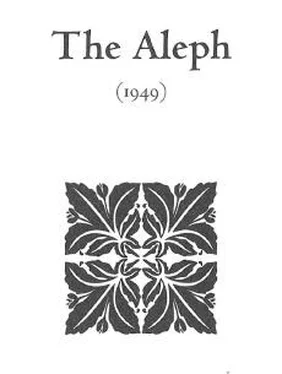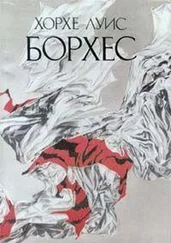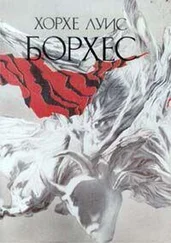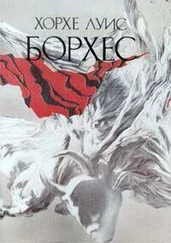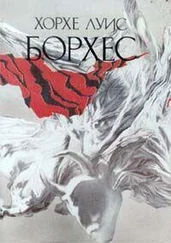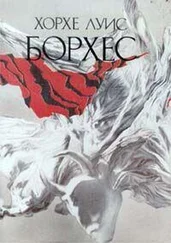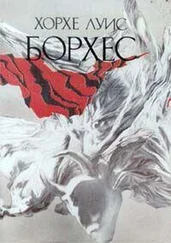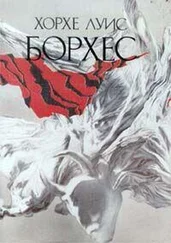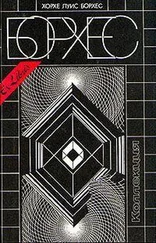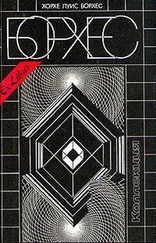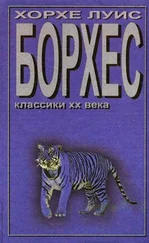Хорхе Борхес - Collected Fictions
Здесь есть возможность читать онлайн «Хорхе Борхес - Collected Fictions» весь текст электронной книги совершенно бесплатно (целиком полную версию без сокращений). В некоторых случаях можно слушать аудио, скачать через торрент в формате fb2 и присутствует краткое содержание. Год выпуска: 1999, ISBN: 1999, Издательство: Penguin (UK), Жанр: Старинная литература, на английском языке. Описание произведения, (предисловие) а так же отзывы посетителей доступны на портале библиотеки ЛибКат.
- Название:Collected Fictions
- Автор:
- Издательство:Penguin (UK)
- Жанр:
- Год:1999
- ISBN:9780140286809
- Рейтинг книги:5 / 5. Голосов: 1
-
Избранное:Добавить в избранное
- Отзывы:
-
Ваша оценка:
- 100
- 1
- 2
- 3
- 4
- 5
Collected Fictions: краткое содержание, описание и аннотация
Предлагаем к чтению аннотацию, описание, краткое содержание или предисловие (зависит от того, что написал сам автор книги «Collected Fictions»). Если вы не нашли необходимую информацию о книге — напишите в комментариях, мы постараемся отыскать её.
Collected Fictions — читать онлайн бесплатно полную книгу (весь текст) целиком
Ниже представлен текст книги, разбитый по страницам. Система сохранения места последней прочитанной страницы, позволяет с удобством читать онлайн бесплатно книгу «Collected Fictions», без необходимости каждый раз заново искать на чём Вы остановились. Поставьте закладку, и сможете в любой момент перейти на страницу, на которой закончили чтение.
Интервал:
Закладка:
He put out a hand to me, and said, still softly:
"Alms, oh Protector of the Poor ..."
I put my hands in my pocket.
"I have not a single coin," I replied.
"You have many," was the beggar's answer.
The stones were in my right pocket. I took out one and dropped it into his cupped palm. There was not the slightest sound.
"You must give me all of them," he said. "He who gives not all has given nothing."
I understood, and I said:
"I want you to know that my alms may be a curse."
"Perhaps that gift is the only gift I am permitted to receive. I have sinned."
I dropped all the stones into the concave hand. They fell as though into the bottom of the sea, without the slightest whisper.
Then the man spoke again:
"I do not yet know what your gift to me is, but mine to you is an awesome one. You may keep your days and nights, and keep wisdom, habits, the world."
I did not hear the blind beggar's steps, or see him disappear into the dawn.
The Rose of Paracelsus
De Quincey:Writings, XIII, 345*
Down in his laboratory, to which the two rooms of the cellar had been given over, Paracelsus prayed to his God, his indeterminate God—any God—to send him a disciple.
Night was coming on. The guttering fire in the hearth threw irregular shadows into the room. Getting up to light the iron lamp was too much trouble. Paracelsus, weary from the day, grew absent, and the prayer was forgotten. Night had expunged the dusty retorts and the furnace when there came a knock at his door. Sleepily he got up, climbed the short spiral stair-case, and opened one side of the double door.
A stranger stepped inside. He too was very tired. Paracelsus gestured toward a bench; the other man sat down and waited. For a while, neither spoke.
The master was the first to speak.
"I recall faces from the West and faces from the East," he said, not without a certain formality, "yet yours I do not recall. Who are you, and what do you wish of me?"
"My name is of small concern," the other man replied. "I have journeyed three days and three nights to come into your house. I wish to become your disciple. I bring you all my possessions."
He brought forth a pouch and emptied its contents on the table. The coins were many, and they were of gold. He did this with his right hand. Paracelsus turned his back to light the lamp; when he turned around again, he saw that the man's left hand held a rose. The rose troubled him.
He leaned back, put the tips of his fingers together, and said:
"You think that I am capable of extracting the stone that turns all elements to gold, and yet you bring me gold. But it is not gold I seek, and if it is gold that interests you, you shall never be my disciple."
"Gold is of no interest to me," the other man replied. "These coins merely symbolize my desire to join you in your work. I want you to teach me the Art. I want to walk beside you on that path that leads to the Stone."
"The path is the Stone. The point of departure is the Stone. If these words are unclear to you, you have not yet begun to understand. Every step you take is the goal you seek." Paracelsus spoke the words slowly.
The other man looked at him with misgiving.
"But," he said, his voice changed, "is there, then, no goal?"
Paracelsus laughed.
"My detractors, who are no less numerous than imbecilic, say that there is not, and they call me an impostor. I believe they are mistaken, though it is possible that I am deluded. I know that there is a Path."
There was silence, and then the other man spoke.
"I am ready to walk that Path with you, even if we must walk for many years. Allow me to cross the desert. Allow me to glimpse, even from afar, the promised land, though the stars prevent me from setting foot upon it. All I ask is a proof before we begin the journey."
"When?" said Paracelsus uneasily.
"Now," said the disciple with brusque decisiveness.
They had begun their discourse in Latin; they now were speaking German.
The young man raised the rose into the air.
"You are famed," he said, "for being able to burn a rose to ashes and make it emerge again, by the magic of your art. Let me witness that prodigy. I ask that of you, and in return I will offer up my entire life."
"You are credulous," the master said. "I have no need of credulity; I demand belief."
The other man persisted.
"It is precisely because I am not credulous that I wish to see with my own eyes the annihilation and resurrection of the rose."
"You are credulous," he repeated. "You say that I can destroy it?"
"Any man has the power to destroy it," said the disciple.
"You are wrong," the master responded. "Do you truly believe that something may be turned to nothing?
Do you believe that the first Adam in paradise was able to destroy a single flower, a single blade of grass?"
"We are not in paradise," the young man stubbornly replied. "Here, in the sublunary world, all things are mortal."
Paracelsus had risen to his feet.
"Where are we, then, if not in paradise?" he asked. "Do you believe that the deity is able to create a place that is not paradise? Do you believe that the Fall is something other than not realizing that we are in paradise?"
"A rose can be burned" the disciple said defiantly.
"There is still some fire there," said Paracelsus, pointing toward the hearth. "If you cast this rose into the embers, you would believe that it has been consumed, and that its ashes are real. I tell you that the rose is eternal, and that only its appearances may change. At a word from me, you would see it again."
"A word?" the disciple asked, puzzled. "The furnace is cold, and the retorts are covered with dust. What is it you would do to bring it back again?"
Paracelsus looked at him with sadness in his eyes.
"The furnace is cold," he nodded, "and the retorts are covered with dust. On this leg of my long journey I use other instruments."
"I dare not ask what they are," said the other man humbly, or astutely.
"I am speaking of that instrument used by the deity to create the heavens and the earth and the invisible paradise in which we exist, but which original sin hides from us. I am speaking of the Word, which is taught to us by the science of the Kabbalah."
"I ask you," the disciple coldly said, "if you might be so kind as to show me the disappearance and appearance of the rose. It matters not the slightest to me whether you work with alembics or with the Word."
Paracelsus studied for a moment; then he spoke:
"If I did what you ask, you would say that it was an appearance cast by magic upon your eyes. The miracle would not bring you the belief you seek. Put aside, then, the rose."
The young man looked at him, still suspicious. Then Paracelsus raised his voice.
Читать дальшеИнтервал:
Закладка:
Похожие книги на «Collected Fictions»
Представляем Вашему вниманию похожие книги на «Collected Fictions» списком для выбора. Мы отобрали схожую по названию и смыслу литературу в надежде предоставить читателям больше вариантов отыскать новые, интересные, ещё непрочитанные произведения.
Обсуждение, отзывы о книге «Collected Fictions» и просто собственные мнения читателей. Оставьте ваши комментарии, напишите, что Вы думаете о произведении, его смысле или главных героях. Укажите что конкретно понравилось, а что нет, и почему Вы так считаете.
